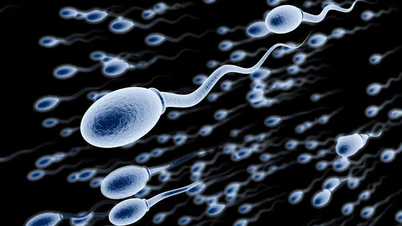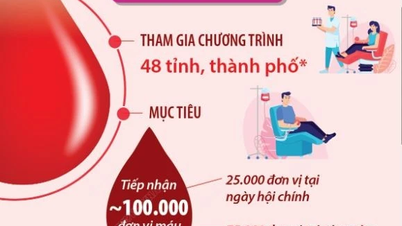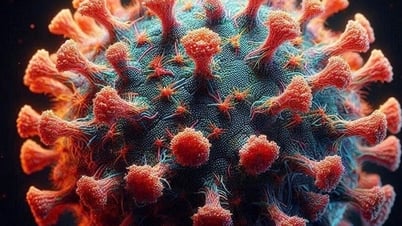Hot flashes are one of the most common and unpleasant symptoms of menopause that negatively affect women's physical and mental health. So how scary are hot flashes?
1. How many menopausal women face the symptom of 'hot flashes'?
Hot flashes are sudden, unexpected feelings of heat throughout the body, accompanied by sweating. Hot flashes start in the face before spreading to the chest and the rest of the body. They can last as short as 30 seconds or as long as 5 minutes.
This is a typical symptom of menopause, caused by changes in the hormone estrogen in the body. When estrogen levels decrease, the body's temperature regulation mechanism is affected, leading to sudden and very uncomfortable hot flashes. Hot flashes can start as early as the pre-menopause period and last for months, even years.
The most common signs of hot flashes include: A sudden, intense feeling of heat, which may appear in the face, neck, arms, torso, and sometimes the entire body; Rapid or irregular heartbeat and pulse; Sweating; Chills; Dizziness, headache, nausea, anxiety...
Studies report that a large proportion of women going through menopause will experience hot flashes. It is estimated that about 80% of menopausal women are affected by this condition, many of whom experience severe hot flashes. According to a report from Johns Hopkins University (USA), about 75% of menopausal women experience hot flashes, 80% of which occur for two years or less, and some menopausal women report severe hot flashes.

Hot flashes negatively affect women's physical and mental health.
2. The negative effects of severe hot flashes
Causes insomnia
Hot flashes are one of the main factors that cause women to lose sleep. Before a hot flash, a woman's body temperature rises and blood flow to the face increases, creating an extremely uncomfortable feeling of heat.
Hot flashes that occur at night, also known as night sweats, are sudden and unexpected feelings of heat throughout the body accompanied by sweating. Hot flashes that occur during sleep cause night sweats that can wake many people up and cause insomnia.
Sleep Apnea
Snoring and sleep apnea also become more common and severe in postmenopausal women. Obstructive sleep apnea is described as a sleep disorder characterized by temporary cessation of breathing, leading to gasping, snoring, and choking, along with decreased sleep quality.
Increases the risk of dementia
Although vasomotor symptoms (hot flashes and night sweats) have been widely studied and documented, the link between menopausal symptoms and the risk of cognitive decline is a growing and emerging area of research.
One New research assessing the cognitive status of nearly 1,300 postmenopausal women in nine Latin American countries has found that women with severe menopausal symptoms such as hot flashes, sleep disturbances and mood disorders are associated with a 74% increased risk of cognitive decline.
Makes women more susceptible to heart disease
Insomnia due to hot flashes not only has a big impact on daily life but is also very dangerous for cardiovascular health. Research from the American Heart Association shows that about 1 in 4 women may develop irregular heartbeat after menopause. Among them, stress in life and poor sleep are the leading factors.
Other studies have also shown that physical, biological, psychological changes, frequent and persistent hot flashes in menopausal women are associated with future cardiovascular disease.

Women with severe menopausal symptoms should consider heart disease screening.
3. Can lifestyle changes reduce hot flashes?
Not all women going through menopause experience hot flashes, and the factors that can increase hot flashes and how they manifest themselves vary from person to person. Studies show that women who smoke are more likely to experience hot flashes. Hot flashes are also associated with a higher body mass index, and overweight and obese women are more likely to experience more frequent and severe hot flashes.
Therefore, doctors advise menopausal women to change their lifestyle to control hot flashes before using medical interventions. Women need to have a healthy lifestyle and reasonable activities. Do not overwork, avoid stress, get enough sleep and eat nutritious foods. Limit alcohol, spicy foods, hot drinks, caffeine and smoking, as they can trigger or worsen vasomotor symptoms.
Since obesity is a risk factor for hot flashes, maintaining a healthy weight through diet and exercise plays an important role in reducing hot flashes. Anxiety and mood swings can also trigger hot flashes, so reducing stress and practicing meditation can be a good way to control, prevent, and reduce the unpleasant symptoms of hot flashes.
Women with a family history of heart disease or who experience early and severe hot flashes should regularly monitor their health and consult with their doctor about the need for cardiovascular screening, the American Heart Association recommends.
Source: https://giadinh.suckhoedoisong.vn/boc-hoa-man-kinh-dang-so-den-muc-nao-172241225180449275.htm


![[Photo] General Secretary To Lam receives Chief of the Central Office of the Lao People's Revolutionary Party](https://vphoto.vietnam.vn/thumb/1200x675/vietnam/resource/IMAGE/2025/5/30/140435f4b39d4599a3d17975dfb444c5)













![[Video] Ho Chi Minh City: Number of COVID-19 cases increases rapidly, 2 deaths recorded](https://vphoto.vietnam.vn/thumb/402x226/vietnam/resource/IMAGE/2025/5/31/5fe289cf72774d918f23fe88bb1686ce)











![[Photo] National Conference "100 years of Vietnamese Revolutionary Press accompanying the glorious cause of the Party and the nation"](https://vphoto.vietnam.vn/thumb/1200x675/vietnam/resource/IMAGE/2025/5/30/1cf6cd5c8a934ebfa347028dcb08358c)



































































Comment (0)